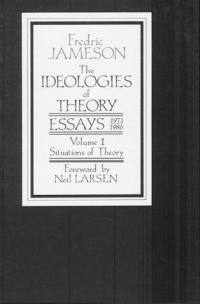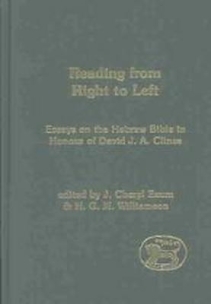문학계에서는 '메타비평'이라고 하며, 간혹 '상위비평'이라고도 한다. 신학에는 '주석비평'이란 대역어가 적절하다.
'Metacommentary'란 용어는 문학평론가 프레드릭 제임슨(Fredric Jameson)의 The Ideologies of Theory란 책에서 처음으로 사용되었다.
"the smallest intelligible unit of the essentially antagonistic collective discourses of social classes."
사회계급들의 근본적인 대립적인 집단의 담론들의 최소 지성 단위.
프레드릭 제임슨은 이 용어를 이데올로기와 관련지어 사용했다. 내가 알고자 하는 내용이 아니다. 난 비평용어로서 알고 싶을 따름이다.
비평 자체의 전문 용어나 기본 전제, 논리적 원리, 구조 따위를 주제로 삼는 비평 방법. 예를 들어 어떤 소설이 다른 소설보다 더 훌륭하다는 판단을 내릴 수 있는 근거를 탐구하는 비평이 이에 속한다. <국어사전>
국어사전에 따르면, "비평을 비평한다"라고 정리된다. 문학동네 2000년 봄 (통권 22호)에 실린 "다시 문학이란 무엇인가"라는 좌담에 관련 내용을 읽어보자.
"가장 큰 문제는 이런 논의를 담은 메타비평이 모두 비평의 정치학이라는 방향으로만 진행되고, 모든 비평담론을 세속적이고 정치적인 코드로만 해석하는 태도가 두드러지게된 것이죠. (……) 메타비평의 경우 비평가가 다른 비평이나 문학작품을 비판적으로 논의할 때, 그 사람의 일관된 문학적 태도를 잘 모르겠어요. 그런데 정치적인 태도는 잘 알 수 있어요. 자신의 미학적 입장을 밝히고 그런 관점에서 텍스트를 분석적으로 비판하는 것이 아니라, 가령 내가 높은 감식력을 가지고 있는데 그 작품은 아니다, 라던가 내가 윤리적으로 우월한데 저 비평은 불순하다는 등의 의미 구조이죠." - 이광호
"… 메타비평은 어디까지나 문제가 되는 어떤 개념, 원리, 범주들을 갖고 있는 가를 찾아내고 분석하고 검토하는 일이지요. 메타비평은 근본적으로 이론비평이에요." - 황종연
여기서도, "메타비평은 비평에 대한 비평이다" 정도로만 들린다. 그럼, 성서학에서는 어떻게 정의되는지 알아보자. 원문이 길어 번역은 하지 않았으며, 주요부분만 읽어도 충분히 이해가 가능하다. 참고로, 이 용어를 성서학에 처음으로 응용하여 적용한 학자는 데이빗 J. A. 클린스(David J. A. Clines)이다.
It is, if you like, commentary on commentary, or more specifically commentary on the methods of biblical criticism. Let me come at this level by means of a story with which we are no doubt familiar: I happen upon a method, say deconstruction or Marxism, or some archaeological or anthropological discovery, that gives me an insight into a particular text. And so I come to that text, perhaps even a central one like Genesis 1-3, and feel that I have the methodological key that unlocks the secret of that text. “Eureka!” I cry and leap out of the bath and run down the street, excited by my discovery. Implicitly or explicitly, I assume that my method is better than all the others that have been used in the millennia of interpreting this text. So I can quietly dispose of them in some dark alley, occasionally firing off a polemical sentence or two at those now discredited methods. And I can get on with my task of exploiting my new method in order to interpret the text, for my method is, after all, far better than all the other methods that have gone before.
In a word, and .i./metacommentary;tingly, I conclude: Once again, we see that the function of commentary on biblical texts has been to familiarize the Bible, to normalize it to our own cultural standards, to render it as undisturbing as possible, to press it into the service of a different worldview; eventually, the effect will be to write the Bible out of existence. That is what has been happening to the Bible in the church, in my opinion, .i.Clines, D.J.A.; and it is no doubt what happens to the Bible in any culture. I suppose it is what happens to old books anywhere, and it is the task of scholars, taking a step of critical distance as best they can from their own culture and their personal scripts, to bring back into the foreground the .i./otherness ;of the familiarized. .i.Exum, J.C. ;.i.Landy, F.
Metacommentary, what is that? Let me try this formulation: When we write commentary, we read what commentators say. When we write metacommentary, we notice what commentators do.
This plain and symmetrical account of metacommentary seems to collapse, however, the moment it has been formulated. For what do commentators do apart from what they say? Apart from playing squash or lying late in bed, which we do not want to know about, what do commentators do other than what they say?
Well, the main thing they do but don’t say is not say what they don’t say. Not many say, Of course, I am failing to ask this question of the text, or, I am hiding from you, dear reader, my own opinion on the matter, or, I come to this text with a prejudice about what it ought to mean. These are really very interesting matters, for they are being concealed. What is written on the
page is only what the author has chosen to reveal; but to every text there is a subtext, which the author has suppressed, repressed, forgotten, ignored, kept from us—and not even told us that it has been kept from us. We innocent members of the public, who go on laying out good money on commentaries, need protection against these commentators who are failing to tell us what it is they are failing to tell us. So it becomes an urgent public duty to create a neighbourhood watch committee of metacommentators who will investigate for us how we are being shortchanged.
역시나 기본 개념은 동일하며, 그 대상이 주석에 한정된다. 즉, "주석에 대한 비평"이다. 데이빗 J. A. 콜린스는 주석가의 편견으로 인해 잘못 쓰인 주석들을 바로 잡고자 주석비평을 사용한다. 그러한 결과물이 <Reading from Left to Right>이다. 다음 두 글을 읽어보면, 무슨 의미인지 확실히 알수 있다.
Reading the Song of Songs as a Classic
http://www.shef.ac.uk/bibs/DJACcurrres/Classic.html
Reading Esther from Left to Right : Contemporary Strategies for Reading a Biblical Text
http://www.shef.ac.uk/bibs/DJACcurrres/Postmodern1/Esther.html
== 관련도서 ==
Fredric Jameson, “Metacommentary,” in The Ideologies of Theory: Essays 1971-1986, vol 1. Minneapolis, Minnesota: University of Minnesota Press, 1988.
Cheryl Exum, H.G.M. Williamson (eds.), Reading From Right to Left: Essays on the Hebrew Bible in Honor of David J. A. Clines, JSOTSup, 373;. London: Sheffield Academic Press, 2003
 invalid-file
invalid-file



